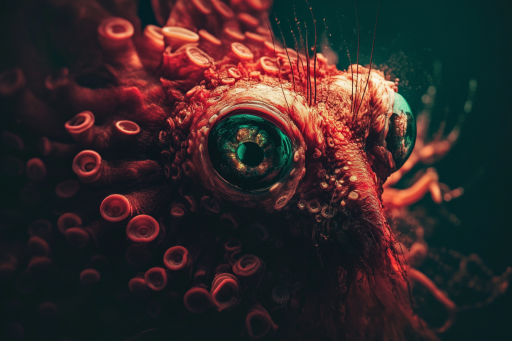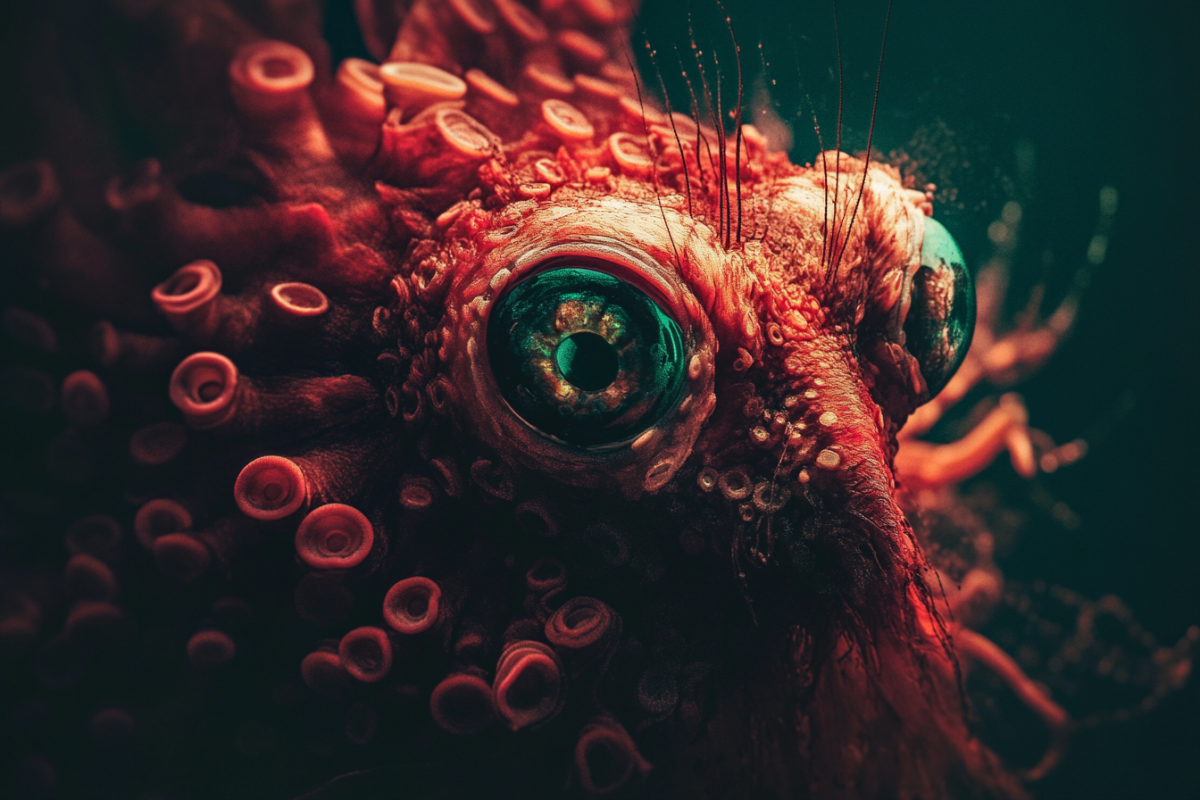
Nature is filled with mysteries, but some animal behaviors defy all logic. From creatures that freeze solid and come back to life to those that dance for seemingly no reason, the animal kingdom is full of strange and unexplained actions. Are these behaviors survival instincts, evolutionary accidents, or something we have yet to understand? Scientists are still searching for answers, but one thing is certain—nature is far weirder than we ever imagined.
Goats That Faint on Command

Myotonic goats, also known as fainting goats, collapse instantly when startled. Instead of running, their muscles lock up, causing them to tip over like statues for several seconds before regaining movement. This bizarre trait doesn’t help with survival—so why does it exist? Scientists believe it’s due to a rare genetic mutation, but why evolution hasn’t phased it out remains a mystery.
Jellyfish That Refuse to Die

Some jellyfish don’t just live long—they live forever. Turritopsis dohrnii, also known as the “immortal jellyfish,” can revert its cells back to an earlier stage of life, essentially starting over instead of dying. No other known creature can do this, making it one of the strangest loopholes in nature. Could these creatures hold the key to immortality, or are they simply playing by different biological rules?
Dancing Frogs That Kick for No Reason

Hidden in the forests of India, tiny frogs put on a strange display—kicking their legs high in the air like performers in an invisible show. Scientists call this behavior “foot-flagging,” but no one truly understands why they do it. Some believe it’s a form of communication, while others think it’s a way to ward off predators. Whatever the reason, these tiny dancers perform their mysterious routine, rain or shine.
Octopuses That Punch Fish for Fun

Octopuses are already known for being clever, but some take their intelligence to a new level—by randomly punching fish. Researchers have observed them throwing sudden, unprovoked sucker-punches at unsuspecting fish, sometimes stealing their food and other times seemingly just for sport. Is it an act of dominance, irritation, or just a cephalopod sense of humor? No one knows for sure, but these eight-armed bullies are keeping scientists on their toes.
Crows That Hold Grudges

Crows are famous for their intelligence, but did you know they never forget a face? Studies show that crows remember people who have wronged them—even years later. They can even pass this information on to other crows, forming generational grudges against specific individuals. With their eerie memory and ability to recognize human expressions, crows might just be nature’s most vengeful creatures
The Shrimp That Punches Harder Than a Bullet

The mantis shrimp isn’t just a colorful sea creature—it’s a biological weapon. This tiny predator delivers punches at speeds exceeding 50 mph, with a force strong enough to shatter aquarium glass. The impact is so powerful that it generates heat and light, creating a mini explosion underwater. How such a tiny creature developed this incredible strike remains one of nature’s biggest puzzles.
Parrots That Name Their Babies

Parrots are known for their mimicry, but some wild species take language a step further—by giving their chicks names. Researchers have found that parrots use specific calls for each of their offspring, much like human names. This suggests a level of social intelligence beyond what we previously understood. How birds developed this unique communication method is still a mystery.
Rats That Laugh When Tickled

Believe it or not, rats have a sense of humor. Scientists have discovered that when rats are tickled, they emit high-pitched giggling sounds—inaudible to human ears but unmistakable under special recording equipment. They even chase after researchers for more tickles, much like a playful puppy. If animals experience laughter, what else do they feel that we’ve yet to understand?
Butterflies That Drink Blood

While butterflies are often associated with beauty and grace, some have a much darker side. Certain species, such as the Calyptra moth, seek out pools of blood, tears, and sweat to drink. Scientists believe they do this to absorb vital minerals, but the sight of a butterfly feasting on a carcass is enough to shake anyone’s perception of these delicate creatures. Nature is far more brutal than it appears.
What Do Animals Know That We Don’t?

The animal kingdom is filled with behaviors that challenge what we think we know about life on Earth. From creatures that never die to those that communicate in ways we barely understand, these strange habits make us question our place in nature. Are animals just acting on instinct, or is there something deeper going on—something we have yet to unlock? The more we study, the more we realize just how little we truly know.





